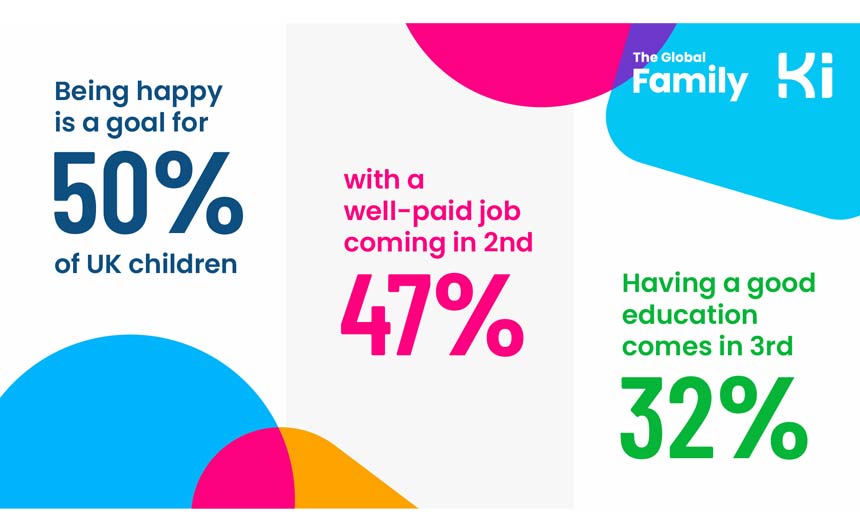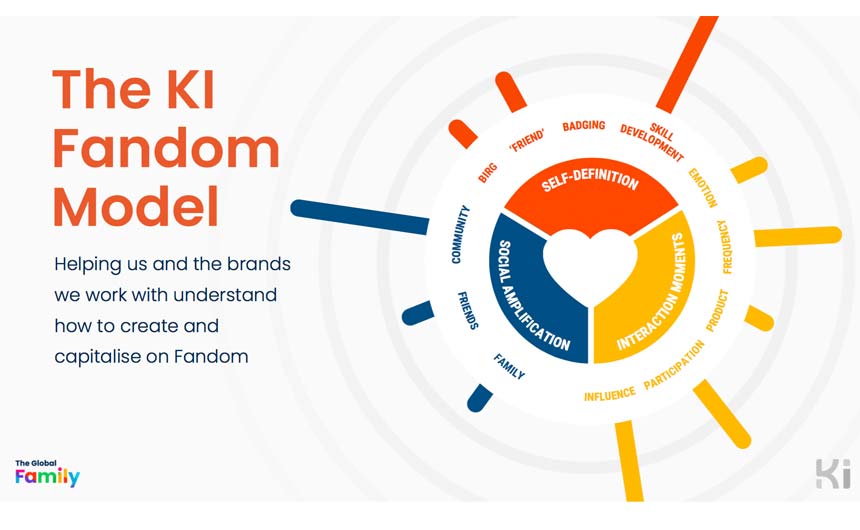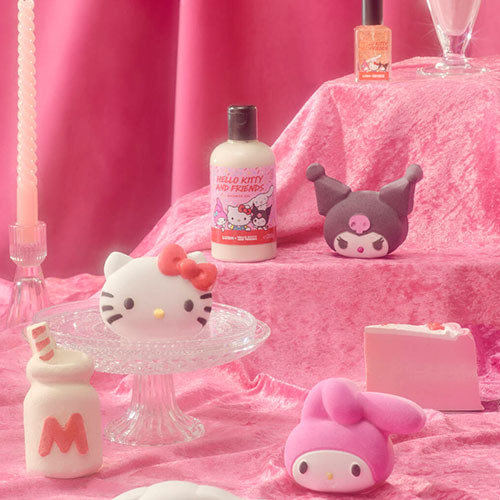Data unveiled at yesterday’s (21 March) Kids Industries’ Global Family Conference reveals that children have more independence than ever when it comes to choosing which brands they engage with, and that brands are connecting with kids at an earlier age.
The event, held at London’s Conway Hall and marking KI’s 20th birthday, was attended by over 200 delegates from the worlds of kids’ entertainment, toys, gaming, edutech, licensing and sustainability, and presented findings from KI’s Global Family Study of 5,000 families across 10 countries: the UK, France, Germany, India, South Korea, the US, Mexico, Brazil, Nigeria and Saudi Arabia.
Jelena Stosic, strategy director at KI, kicked off the conference with some statistics revealing the different parenting styles and values held by families across the world today. When it comes to the UK, she revealed that:
- Children today are goal driven – 8% aspire to fame, but just over a fifth (21%) want to change the world for the better.
- Being happy is a goal for 50%, with a well-paid job coming in second place (47%). Having a good education comes in third place – with 32%.
- The number one activity (73%) is watching online videos, followed by watching streaming or on-demand television e.g. Netflix, HBO Max, Disney+ (67%). Playing mobile games/apps comes in third place (60%). 59% enjoy playing outdoors at least once a week.
- 67% of UK children feel positive about the future – in comparison to 74% globally.

In a session on building affinity with brands, Raj Pathmanathan, creative director at KI, revealed that much of the content UK children aged 4-6 engage with is chosen independently by them – a seismic shift.
Of this group:
- 51% have access to a smartphone and 88% have access to a tablet. A further 72% have access to smart devices (Smartwatch, generic or kids focused smart speaker).
- Children are also accessing services, which though not necessarily designed for them, allow for the rapid dissemination of high volumes of content. 56% use YouTube, 9% use TikTok and 8% use WhatsApp. In total 12% use messaging apps such as WhatsApp, Signal, Telegram and Snapchat.
- This means that much of the content children engage with is chosen independently by them.
- 21% choose most or all of their audio content.
- 42% select most/all of their online video content.
- 39% decide on most/all of their TV/streaming content
- 32% choose their own gaming content
Where previously, parents, siblings and friends would prompt engagement with different brands, today online influencers now have a huge role to play.
- A quarter of UK children discover new streaming shows or films through influencers they follow talking about it. 24% discover new brands and products through the same method.
- Influencers now rival friends and family in decision-making for the family – with toy influencers actually being more important than friends and relatives (18% versus 15%). The split is also now equal (16%) for apparel. Influencers lag behind friends and family but only approximately 4% for groceries and technology.
- Peer influence is also growing in scale as children connect and share with one another on messaging apps, social media platforms and gaming platforms. They can proudly display their fandom not just on their t-shirt but on their avatar. Over a third (34%) of UK children (aged 4-13) use social media and 46% of this group play Roblox – a game focused on connecting with friends.
“Children’s love for a brand is dictated by their age and developmental stages and whilst the influence of parents on children’s decision making is clear, increased access to digital products and services means that children today have increased control over their decision making. Kids have a new-found independence,” Raj explained.
UK children now have a huge influence on family purchases: 60% influence family leisure activities/days out, 44% propose which TV/film streaming platforms parents to subscribe to and 42% have their say on holiday destinations.
“Brands today must be brave to be successful – making hard choices and doubling down on the select number of channels which are generating high engagement among kids,” Raj continued. “The good news is that the proliferation of digital platforms is enabling more than passive entertainment consumption; children are now creating videos and digital worlds themselves on platforms such as YouTube, TikTok, Roblox and Minecraft. The low barriers to entry across these platforms is enabling every child to be a creator today if they want to be – and that’s got to be a good thing to get involved in.”

Raj pointed out that Roblox today is where YouTube was roughly 15 years ago – and offers huge potential for brands. Notable success stories on the platform include Nikeville, and Shimmerville, created by Claire’s Accessories.
Joshua Brocklehurst, senior researcher at KI, presented a segment that shone a light on the incredible power of fandoms, revealing that boyband BTS generates an astonishing 0.7% of South Korea’s GDP. He outlined how, in a crowded entertainment landscape, fandoms are harder than ever to develop, but deepening consumers’ personal connections with a brand through user-generated content is one way to cut through, as are ‘moments of interaction’. Joshua cites the ‘Wednesday dance’ as performed by Jenna Ortega in the MGM TV series and replicated by fans around the globe on social media, as a great example of how allowing the fan community an opportunity to express themselves creatively can build engagement.
According to KI’s data, kids globally express the same concerns about the future – the environment was their number two concern overall, and was the number one issue in the UK, France, India and South Korea – and Brocklehurst explains that brands that can reflect kids’ values therefore have a better chance of standing out.
Kids are also remarkably similar when it comes to what makes them happy, citing spending time with family (53%) and with friends (59%), watching videos, TV and film (56%) and going on holiday (56%) as things they enjoy. Parents, too, are largely happy (47%) with the idea of their kids watching TV or films as a leisure activity – most likely because of the opportunities for co-viewing as a family.
“What the Global Family data shows is that there been so much power in the tiny hands of so many,” Gary Pope, KI’s ceo and co-founder told LicensingSource.net. “It also shows that a good licence – a licence that connects with families because they’re families – has the ability to travel anywhere in the world.”































